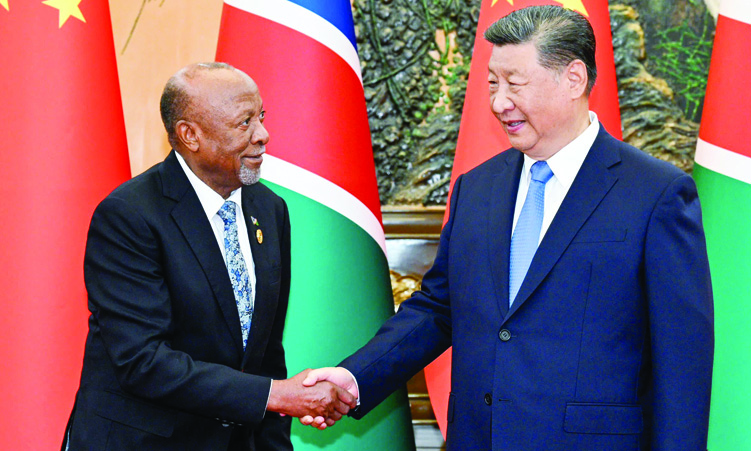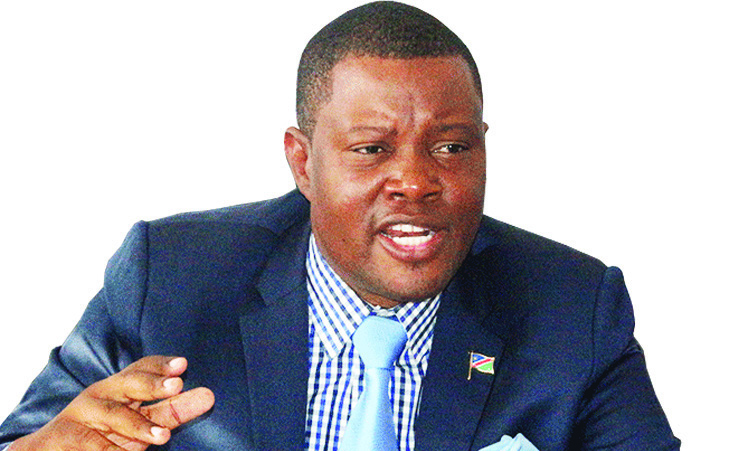There’s a beautiful story of hope to tell. Like the odd, yet improbable fate of a man that reaches the strangest outcome…
And this beautifully written Namibian story is told through the eyes of millennials named Tuhafeni George DaSilva Hishitelwa – a proud man who is eager to share the gruelling details through ‘The Story of Hope’.
Hishitelwa, who describes himself as a ‘critical thinker, motivational speaker, life coach, youth activist and world changer’, isn’t afraid to bare his all in the autobiography of his life.
Starting off from birth, the he shares how his name ‘Tuhafeni’ means ‘let’s be happy’, although he is amusingly known as Shanyengage by his grandmother – a name that more or less translates to ‘I can’t handle it’.
As it goes in the Owambo tradition, the naming process of a newborn is one of the most important in a child’s life – a process where they are kept indoors for the first day and omalodu (traditional home-brewed alcohol) is served to the people of the village to celebrate someone new in their clan.
But just as Hishitelwa’s birth was a ‘happy’ day – his path in life was tough. Sleeping days on end with a hungry stomach… having to take on jobs and learn how to fend for himself… And being one of 34 children from his father’s side, it’s easy for a child to feel left out and uncared for.
Raw with emotion, the reader can somehow feel Hishitelwa’s pain as he recalls his childhood memories – from being too poor to attend school at some point, but overcoming the struggle, yet later walking many kilometres every day for the sake of obtaining an education. Many adults, especially those who grew up in the same situation can strongly relate to this struggle, while millennials in particular can learn from his story.
It is of interest to note how one minute, things can go smoothly and the next minute, death suddenly surrounds you, especially the death of those who mean the most to you. And this sadly happens to the author, who has to struggle with an overabundance of death in a year – five people in total. At some point, the author even asks himself ‘why does God always take away the good people around us?’
But eventually, he puts all of his energy into school – but even this does not go as smoothly as planned. He becomes a rough child who is constantly disciplined by teachers, with his results taking a toll on his behaviour. Thankfully, he has teachers who influence him positively, despite not being financially stable or having a place to call home. Further on in the book, readers learn how he met his father again at the age of 24, how his friends’ get-rich quick schemes almost drove him to destruction and the importance of religion in his life.
If you’re feeling down and out or demotivated by life, Hishitelwa’s story is definitely a reminder of how being poor is not the end of the road. You can rise up from sorrow and death, you can learn to forgive and of course, everyone has a lesson to teach you, no matter how small.
Thanks to editor Melanie Tagwireyi for sprucing up the literature, this book will definitely make for a great addition to your growing Namibian collection.
Published and printed by Diaspora Publishers International in Scotland, the book costs N$300 and is available at The Book Den in Windhoek, Via Bistro in Ausspannplatz or at the Skype Call Centre Internet Cafe in Walvis Bay. Call 0814083328 or email: hishitelwat.dasilva@gmail.com for more information.
Stay informed with The Namibian – your source for credible journalism. Get in-depth reporting and opinions for
only N$85 a month. Invest in journalism, invest in democracy –
Subscribe Now!






